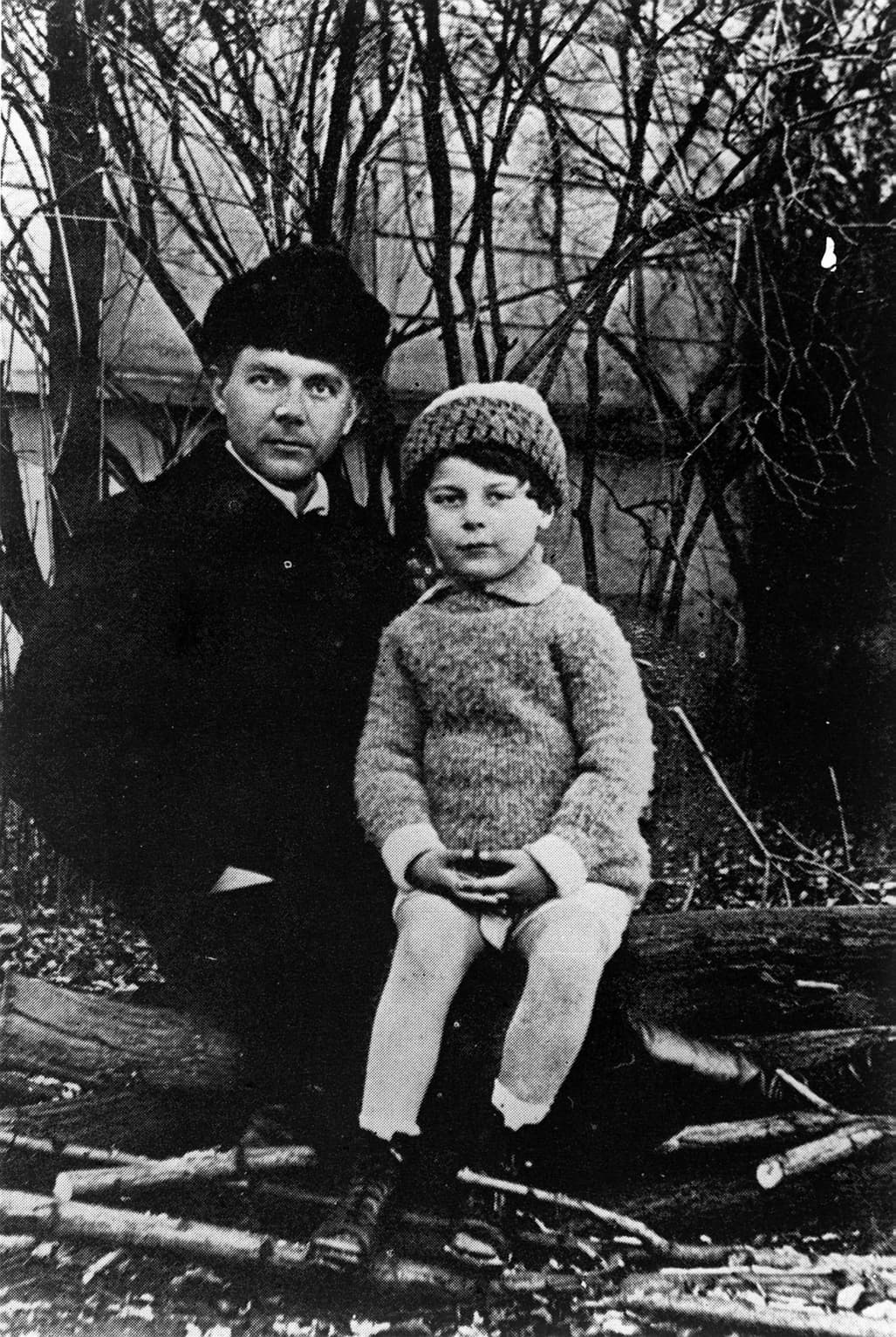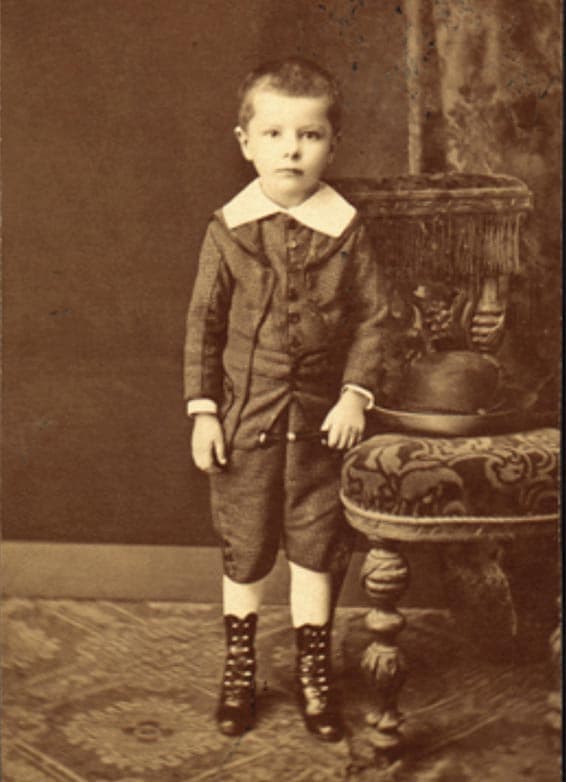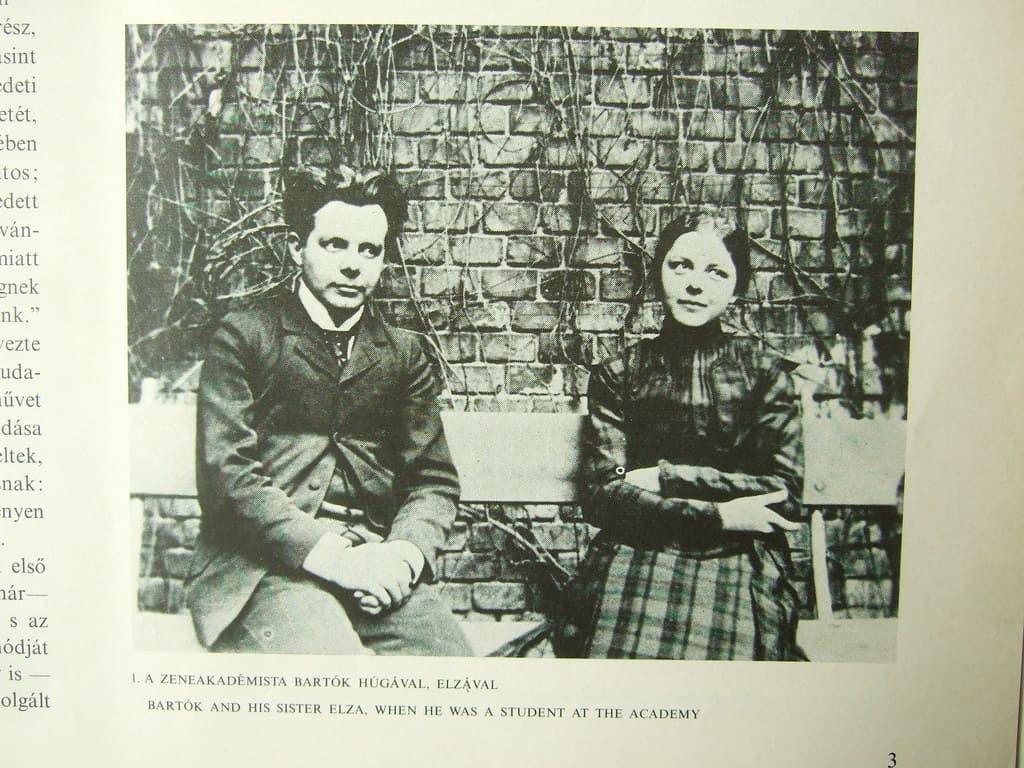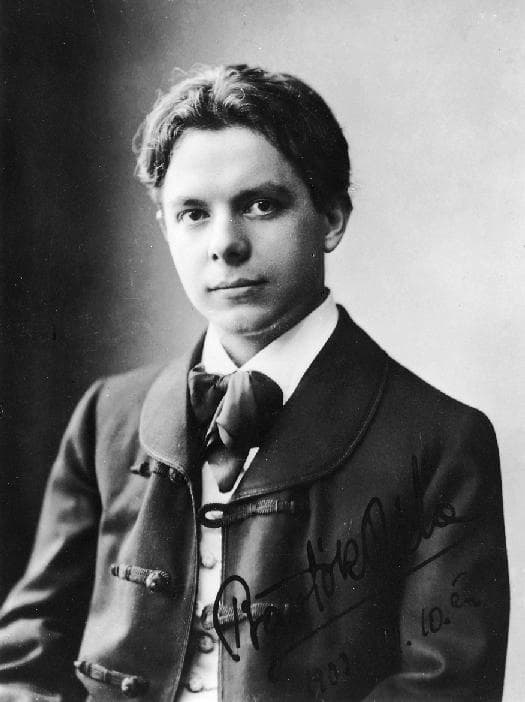It is somewhat ironic that not a single Hungarian town in which Béla Bartók spent his youth is now within Hungarian boundaries. At the time of his birth on 25 March 1881, the town of Nagyszentmiklós was part of the northern end of the ethnically diverse southern Hungarian province of Torontál. With the Treaty of Trianon of 1920, the area was divided between the Kingdom of Serbs, Croats and Slovenes, Romania, and Hungary. At present, the territory belongs to Serbia and Romania, except for a very small area, which is still part of Hungary.
Parents of Béla Bartók

Béla Bartók and his father
His father, also named Béla, was the principal of a government agricultural school, and Bartók described him “as a gifted musician who played the piano, and learned to play the cello so that he might play in a little amateur orchestra.” Apparently, Bartók Sr. was also known to compose lighter dance pieces.
His mother Paula Voit was a teacher, and she was a keen amateur musician as well. They strongly encouraged the musical development of their son, and by age four he was able to play some 40 songs on the piano.
Béla Bartók: 3 Klavierstücke, BB 14 (excerpts) (Jenő Jandó, piano)
The Young Bartók’s Illness

Béla Bartók at age 5
Béla had been a healthy baby, however, his childhood was beset by illness. He suffered for a number of years with a recurrent skin rash that alternated with periods of high fever. A long list of childhood diseases delayed his motoric development, and he was well past his second birthday before he began to talk. Bartók was described as a quiet and serious child, and his health problems prevented him from playing with other children. A medical examination at the age of 5 wrongly diagnosed a spinal curvature, but the child was still subjected to drastic treatment. “He was not permitted to sit down, had to take his meals standing, and when exhausted allowed only to lie supine on floor or ground.” He was sent for a “cold-water cure” at the Austrian resort town of Radegund, a visit that led to his first composition titled “Echo of Radegund.” Young Béla received his first piano lessons from his mother at the age of five, and at seven he was tested as having perfect pitch.
Béla Bartók: Evening, BB 30 (Hungarian National Chorus, male section; Zoltán Kocsis, cond.)

Béla Bartók and his sister
Bartók’s earlier years of schooling were unsettled, as the premature death of his father in 1888 caused the family to move frequently during the following six years. His mother took teaching positions in principal towns to permit her son and daughter to have access to a broad general education. Despite a spotty general education, Bartók’s musical talents developed rapidly. Between 1890 and 1894 he composed a total of 31 piano pieces with occasional programmatic titles such as “The Course of the Danube,” and “Gymnastic Contest in Budapest.” He also became a formidable pianist, first performing in public on 1 May 1892 in a program including works by Grünfeld, Raff, Beethoven, and himself. Bartók had always been fascinated by languages, and alongside Magyar and German he learned Latin with a tutor, and he studied English and French later. In the course of his folksong collecting he found that he needed both Slovak and Romanian, and he acquired them both.
Béla Bartók: Scherzo in B Major, BB11 (István Kassai, piano)
Bartók’s Early Compositions

Béla Bartók at age 22
Once the family had settled in the town of Pozsony, Béla was appointed chapel organist, as successor to Ernő Dohnányi. And he received more specialized musical training from László Erkel and later Anton Hyrtl. For a period of time, he focused almost exclusively on composing chamber music, and a scholar writes, “his composition style and harmonic vocabulary broadened from Classical to early Romantic models, with the imprints of Brahms and Schumann strongly felt.” In February 1899 Bartók developed serious lung problems, yet he still auditioned at the Vienna Conservatory and the Budapest Academy of Music. He was accepted into both institutions, but he quickly decided to follow Dohnányi to Budapest. Bartók started piano lessons with István Thomán and took instructions in composition from Hans Koessler. He had found some lodgings in a boarding house with a piano in the lobby downstairs, but after one week he wrote to his mother, “Everything would be fine except the piano is miserable. Everything rings and buzzes, the pedal squeaks… Besides, I am always interrupted. Yesterday a captain was here, today two ladies, at the same time I was playing my scales. And then they want me to play something… Why do they always sit there? And I shall not play at all.”
For more of the best in classical music, sign up to our E-Newsletter
Béla Bartók: Piano Quintet in C Major
